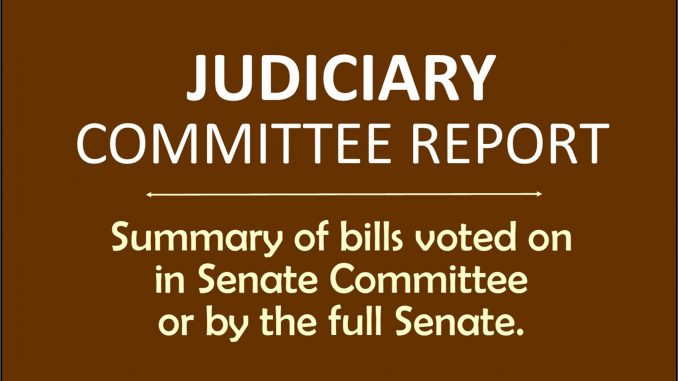
On this page
COMMITTEE ACTION:
SF 339 – Employing undocumented individuals
SF 339 requires that an employer not knowingly employ an unauthorized alien. After hiring or rehiring an employee, an employer will verify their eligibility through E-Verify. To receive any economic development incentives from government entities, the employer must register with and participate in E-Verify. Based on the fiscal notes for similar bills, the total cost will be around $750,000.
[2/1: 10-5, party line]
SSB 3010 – Definition of antisemitism
SSB 3010 defines antisemitism to match the working definition used by the International Holocaust Remembrance Alliance on May 26, 2016. It instructs agencies to include it in determining discriminatory acts and in discrimination training. It does not create any claim or standing for suit.
[2/1: 15-0]
SSB 3027 – Modifying and extending no-contact orders
SSB 3027 would make the extension of no-contact orders automatic on the expiration of the previous no-contact order. The defendant could apply within 90 days prior to its expiration to ask the court to find the defendant no longer a threat. The number of modifications extending the no-contact order permitted by this section is not limited. Under current law, either the State or victim must file an application for extension within 90 days prior to the expiration of a no-contact order. The court enters the extension unless it finds the defendant is no longer a threat.
[2/1: 14-1 (No: Bisignano)]
SSB 3011 – Penalties for possession/manufacture/distribution of heroin
SSB 3011 significantly increases penalties related to heroin. The previous tiers were over 1000g / up to 50 years; 100g-1000g / up to 25 years; and less than 100g / up to 10 years. The new tiers would have the same sentences but the ranges would be more than 100g / 5g – 100g / under 5g.
[2/1: 13-2 (No: Bolkcom, Petersen)]
SSB 3015 – Documents defendants/applicants represented by counsel may file
SSB 3015 allows both defendants and applicants who are represented by counsel to file notices of appeal. Currently, they can only file motions to disqualify counsel pro se. An issue developed wherein defendants cannot file notice of appeal when counsel fails to make such filing. Whether to appeal is exclusively the right and decision of the defendant, and the filing of a notice of appeal is not substantive but rather ministerial.
[2/1: 15-0]
